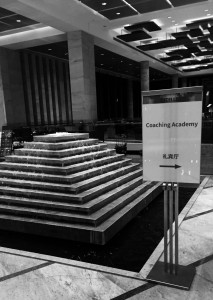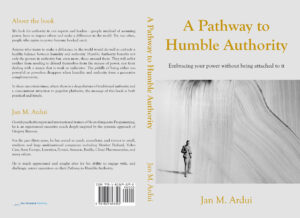How to integrate a coaching attitude in a managers position
I am on my way back from a 2 days coaching at the Coaching Academy of Luxottica. During our sessions, a topic that came up very often was the difficulty for many managers to find a way to integrate the coaching attitude in their managers role. Usually managers are so busy, they find it hard to imagine to spend more time on coaching their team or peers. This leads me to the question: “How to integrate a coaching attitude at the same time as the daily management, leadership tasks.”
I developed a system in order to come to the deep structure of excellence. which has to do with the necessary presence in excellence of generative complementarities. Those are 2 opponents, characteristics that are seemingly in opposition and always in tension. However, if you can make them available and present at the same time, it will stimulate the emergence of excellence. For example, the most important generative complementarity of excellence was identified as a combination of discipline and freedom. This is the fact of people being able to be disciplined and free at the same time.
I think that the managers role and the coaching role could also be seen as a generative complementarity. If you think about the managers role, it is about execution, leading, demanding, giving tasks and accomplishing tasks. On the contrary, coaching has a facilitating role. Somehow these are in opposition, they can be in conflict. Some people say: “As a manager, I can’t be a coach, or as a coach, impossible to manage people”. I am convinced of the fact that if people find a way to combine those at the same time, I would call that excellency in leadership. It means that the manager is able to be very task oriented at the same time as fully relationally oriented. It is not about adding new tasks or things that demand a lot of time, but it is an attitude that will be executed at the same time as your managers role.
A suggestion of what a manager could do and that does not take a lot of time is teach people how to listen on 2 levels at the same time. This is something we focus on at the Coaching Academy. For example when somebody is telling you about the task he/she has accomplished, you can just be focused on the task and its execution and of course the best result. What will happen if at the same time you could be focused and attentive to the learning opportunities or possible development areas for this person? As a manager you would listen on both levels: one of the management orientation, second a coach orientation. If you reach that goal, you will only need about a minute to say something, give feedback or express a recommendation that has to do with the learning or the development of that specific person, based on the small conversation you had. The extra minute you spend is really worth the investment, as it can lead to excellence for both the manager and the team.

